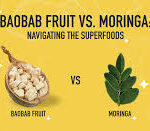The Role of Traditional African Foods in Modern Diets

In a world where fast food and processed meals dominate, many people are beginning to rediscover the value of traditional African foods. Rich in nutrients, history, and culture, these foods not only nourish the body but also help fight chronic diseases. From millet and yams to moringa and beans, traditional staples are gaining new recognition for their role in supporting modern healthy diets.
Nutritional Powerhouses from African Heritage
African traditional foods are naturally nutrient-dense. Millet, sorghum, and fonio are gluten-free grains packed with fiber, protein, and minerals. Yams and sweet potatoes are excellent sources of complex carbohydrates and vitamin A, while beans, cowpeas, and groundnuts provide affordable plant-based protein. Leafy greens like moringa and amaranth are often referred to as “superfoods” because they are loaded with vitamins, antioxidants, and essential amino acids.
These foods deliver slow-release energy, support digestive health, and strengthen immunity—benefits often missing in highly processed diets.
Supporting Health and Preventing Disease
Traditional African foods contribute to the prevention and management of non-communicable diseases. For example, fiber-rich sorghum helps regulate blood sugar levels, making it beneficial for people living with diabetes. Moringa leaves lower cholesterol and improve heart health, while groundnuts provide healthy fats that reduce the risk of cardiovascular diseases.
Incorporating these foods into modern diets also combats malnutrition. Many African children suffer from stunting due to poor diets, yet affordable, nutrient-rich traditional staples can close this nutrition gap.
Sustainability and Food Security
Beyond personal health, traditional African foods are vital for sustainable farming and food security. Crops like millet, cassava, and sorghum are drought-resistant, making them ideal for Africa’s changing climate. By promoting these indigenous foods, communities strengthen local economies, preserve biodiversity, and reduce dependence on imported processed products.
Blending Tradition with Modern Lifestyles
Adapting traditional foods to modern eating habits doesn’t have to be complicated. Millet can be turned into porridge or baked into bread. Yams can be roasted or mashed as healthier alternatives to refined starches. Groundnuts can be used in protein-rich spreads, while moringa powder is easily added to smoothies.
Restaurants, chefs, and health influencers are increasingly incorporating these foods into trendy dishes, proving that tradition and modern health goals can work hand-in-hand.
Conclusion
The role of traditional African foods in modern diets goes beyond nutrition. They are part of Africa’s heritage, a solution to today’s health challenges, and a pathway to food security. By embracing these foods, Africans and the global community can enjoy healthier lives while preserving cultural identity.
Written by Fawzi Rufai, Medically Reviewed by Sesan Kareem



